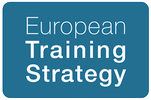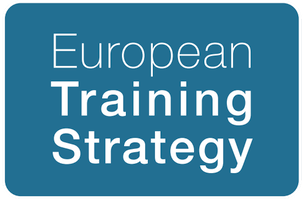The term ‘competences’ refers to a system of values, attitudes and beliefs, and skills and knowledge that can be applied in practice to manage various complex situations and tasks successfully. Confidence, motivation and well-being are important prerequisites for someone wishing to successfully apply developed competences.
Formal education is a form of purpose-driven learning that takes place in a distinct institutionalised environment. This environment is designed for teaching/training and learning, is staffed by qualified and examined educators, is geared towards specific topics and levels, and usually serves a clearly defined category of learners (age, level and specialisation). Formal education (and hence formal learning) is organised and formalised by means of national curricula. Formal education is built up in a way that allows successful students to move up to the next level and obtain a corresponding degree, diploma or certificate. Typical formal education institutions include primary and secondary schools, vocational colleges and universities. Most formal learning is compulsory.
Identity is understood as a cluster of elements and dimensions that define an individual at certain times and in certain situations, contexts and settings. Identity encompasses not only dimensions such as gender, sex, persona, culture and ethnicity, but also includes processes such as identity (personality) change and social transformation. Developing ones’ identity is a dynamic process.
Informal learning is not necessarily purpose-driven and is generally unstructured (i.e. it lacks defined learning objectives, predetermined learning settings or educational materials). Informal learning takes place in everyday contexts in the family, at work, during leisure time and within the community. While informal learning does have outcomes, these are rarely recorded, virtually never certified, and are typically not immediately visible to the learner. These informal learning outcomes do not necessarily have an inherent value for formal education, training or employment purposes.
Intercultural competence as developed and demonstrated within the framework of youth work includes a set of qualities that people need so they can live in contemporary, pluralistic societies. It enables them to actively confront social injustice and discrimination and promote and protect human rights. Intercultural competence requires an understanding of culture as a dynamic, multifaceted process. In addition, it calls for an increased sense of solidarity that allows individuals to negotiate their insecurity and fear of the ‘other’ e.g. through critical thinking, empathy and by accepting ambiguity.
In the framework of this competence profile, quality is to be understood as encompassing dimensions such as ethos and coherence, adherence to defined objectives, change, and innovation.
Quality of training in the youth field
Training quality plays an essential role in promoting the recognition of non-formal education and youth work; the role of trainers and of training for trainers is thus essential. The criteria pertaining to training in the youth field represent agreements on which existing training courses in the youth field are based. These criteria may include the following:
- The training is based on the values and principles of non-formal learning
- The training is aligned with the evidence-based knowledge about mutual needs of learners and society and promotes a defined set of competences
- The training responds to the needs, competences [abilities] and the individuality of learners and leaves room for both expected and unexpected outcomes
- The training is carefully planned and executed in terms of its educational impact and practical organisation
- Sufficient resources are made available in advance, and are employed in a clearly results-oriented and efficient manner
- The training is evaluated based on jointly agreed criteria
- Its results/outcomes are recognised and visible
The quality of trainers – i.e., their professional expertise combined with their ability to perform within an educational framework – has a crucial impact on the quality of the training activities they deliver. For stakeholders and training organisations, composing a team of trainers who are able to function and deliver according to expectations ought to be a permanent concern. Trust and transparency are of particular importance in this process. Special attention must be paid to the ability of each trainer and to the importance of the smooth functioning of a given team of trainers. It must hence be ensured that all areas of competence relevant for the educational activity in question are addressed, that the individual trainers can work together as a team, and that the necessary sex/gender and geographical balances are safeguarded.
A learner is a participant in the learning process. The training is always targeted towards the learner and his/her competences are developed through it. The terms ‘training participant’ or ‘trainee’ are often used as synonyms. Learning Learning is a process that results in permanent social transformation and change in a learner’s competences and actions. Learning allows them to become a more experienced, self-aware and self-directed individual. Based on Kolb’s experiential learning cycle, one of the learning cycles that can be observed in many youth work situations encompasses the following four steps: observe, stop, reflect, and adapt.
In this model we use the term meaningfulness as the capacity to clearly express an emotion or an idea with or without words. Meaningfulness also refers to something that is important, that has a value (for a person, for a group of persons) and that relates to a purpose. For some, meaningfulness goes hand in hand with the notion of mindfulness, meaning the ability to remain fully present and aware in the ‘here and now’, acknowledging and accepting one’s feelings, thoughts, and bodily sensations in a non-judgmental manner.
Non-formal learning is a targeted learning process that supports the development of an individual: their social transformation, potential, creativity, talents, initiative and social responsibility as well as the acquisition of relevant knowledge, skills, attitudes and values. It is understood as a form of learning that takes place outside institutional contexts (e.g. school). Non-formal learning in youth work settings is often structured, based on learning objectives, takes place during a certain period of time, involves specific learning support, and is intentional (and voluntary). Non-formal learning is based on a series of educational values and principles.
Principles of non-formal learning
The principles of non-formal learning are agreements on which the organisation of non-formal learning is based: a focus on the learner and their development; transparency; confidentiality; voluntariness; participation; ownership; and democratic values.
‘Trainer’ is traditionally used to refer to those who shape, guide and accompany the learning processes of individuals or groups. In the youth field, trainers design and implement educational activities based on the values and principles of youth work and non-formal learning, they create conditions that promote the learners’ individual development, and they shape the knowledge, skills, attitudes and values necessary for youth work.
Training in the youth field means a targeted educational activity based on the principles and values of youth work and nonformal learning. Training in this area is targeted at young people and those who create the conditions for young people to engage in activities that foster their individual development (youth workers, youth trainers, public officials, leaders, counsellors, etc.). They do so by supporting the development of young people in various ways and by promoting the acquisition of the knowledge, skills, attitudes and values that are necessary for quality youth work.
‘Values in non-formal learning’ means a set of convictions and beliefs that guide the choices and approaches applied in non-formal learning. In the youth field, the values of non-formal learning are connected to personal development (e.g., independence, critical thinking, openness, curiosity, creativity), social development (e.g., the ability to interact, participative 17 democracy, solidarity and social justice, responsibility, problem-solving) and ethics (e.g., acceptance of others, human rights, intercultural learning, intercultural dialogue, peace and non-violent behaviour, gender equality, and intergenerational dialogue).
The UN probably has the most flexible definition of youth: ‘YOUTH is best understood as a period of transition from the dependence of childhood to adulthood’s independence. That’s why, as a category, youth is more fluid than other fixed agegroups. Yet, age is the easiest way to define this group, particularly in relation to education and employment, because “youth” is often referred to a person between the ages of leaving compulsory education, and finding their first job’. From a psychological perspective, young people are persons in the age range of 20 to 35, although youth starts earlier if we include the period of adolescence. Erik Erikson (1959) distinguishes the following stages of psychosocial development: the young adult stage (from 13 to 39) precedes early adulthood (from 20 to 39) and this precedes middle adulthood (from 40 to 64). Daniel Levinson (1978) and Rhona Rapoport (1980) add that ‘[…] for a variety of reasons, timeliness on young adulthood cannot be exactly defined – producing different results according to the different mix of overlapping indices (legal, maturational, occupational, sexual, emotional and the like) employed, or on whether a developmental perspective [… or] the socialisation perspective is taken’. For Erikson, the psychological crisis during adolescence is about ‘fidelity’. Young people ask themselves the existential question: ‘Who am I and what can I be?’ They learn to position themselves in relationship with others.
Neuroscience defines adolescence as the ‘[…] period between the physical changes during puberty and the capacity of an individual to play an independent role in society’ (Sarah-Jayne Blakemore, 2008).
Youth work is an extra-curricular field of work, in that it involves specific leisure activities and is based on non-formal and informal learning processes and on voluntary participation. It promotes young people’s development in a multi-faceted manner, enabling them to become active outside their families, formal education, and work. Youth work activities and processes are self-managed, co-managed or managed under the guidance of educational staff (either full-time or voluntary youth workers and youth leaders) and can develop and change in line with various dynamics. Youth work is organised and delivered in different ways (e.g., by youth-led organisations, youth organisations and informal groups, and by youth services and public authorities) and is shaped at the local, regional, national and European level.
Youth workers work with young people in a wide variety of non-formal and informal learning contexts, typically focusing on their young charges’ personal and social development through one-on-one relationships and group-based activities. While acting as trainers/facilitators may be their main task, it is just as likely for youth workers to take a socio-educational or social work-based approach. In many cases, these roles and functions overlap


